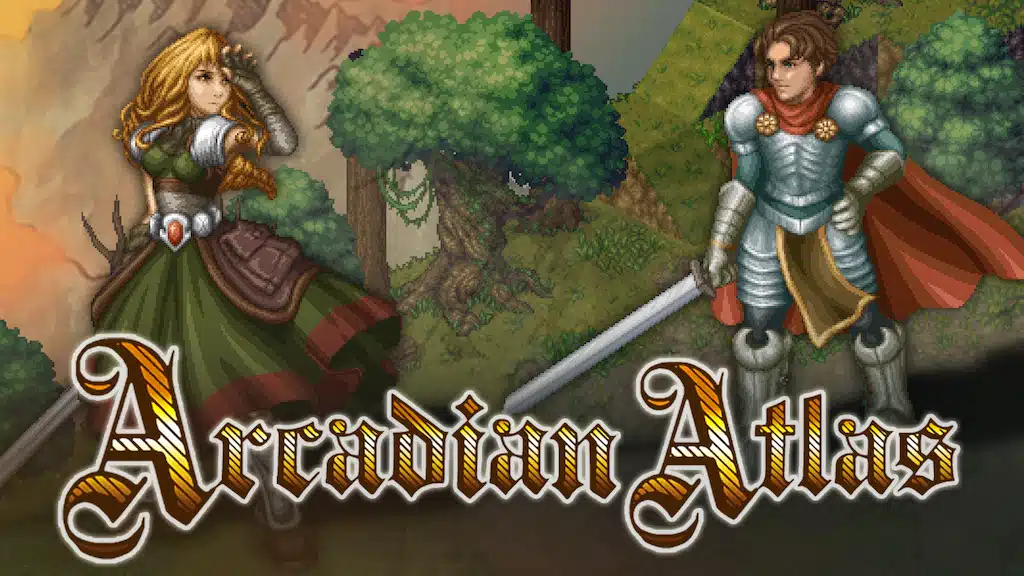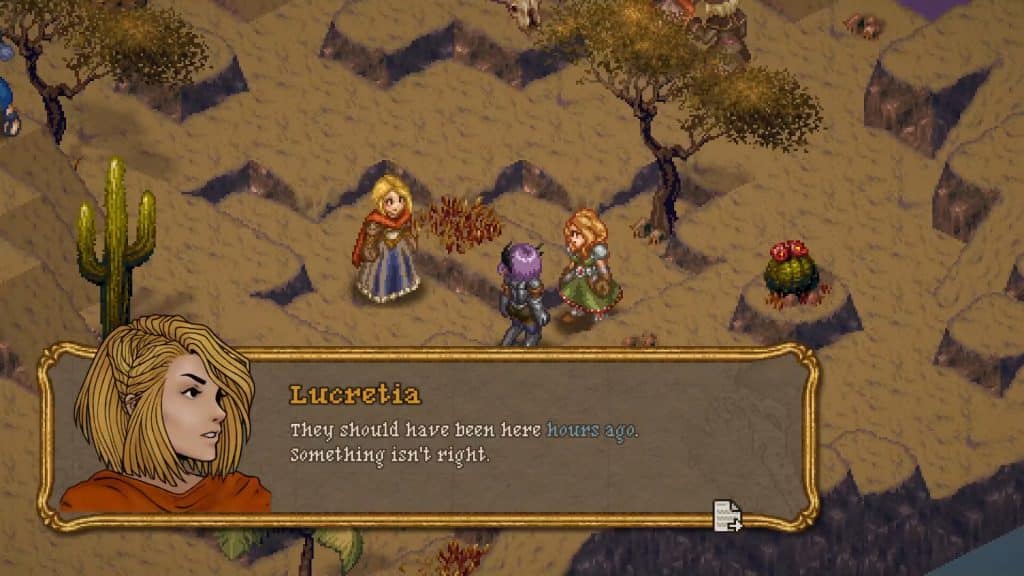

While many experiences try to push gaming to its absolute limit, it’s always nice to see other companies try to refine classic formulas. This was the case with Double Dragon Gaiden: Rise of the Dragons, and was my main thought while playing through Arcadian Atlas. Taking a page from Final Fantasy Tactics and Nippon Ichi Software classics like Disgaea, this tactical RPG attempts to merge solid gameplay mechanics with an engaging story. Given the strong foundation and years of examples in the genre, does this make Arcadian Atlas a must, or should it learn a few more lessons?
Arcadian Atlas tells the story of two lovers struggling with complicated concepts like allegiance and honor. Along with that, there is a third party that has the potential to shift the balance in an unexpected way. It’s a familiar narrative that doesn’t take long to catch your interest in the fascinating world of Arcadia.


Part of what makes Arcadian Atlas work is the attention given to each character. It clearly wants to explore this deep narrative through casual comments or major conflicts. It makes things interesting, assuming you can overcome the various battles.
While it’s clear which adventures inspired Arcadian Atlas, it’s hard to say it adds much in regards to gameplay. Most fights come down to positioning and understanding what role units fulfill. This makes planning important before heading into battle, as later fights require more than simply killing enemies faster.
Where things go south is the overall feel. Combat generally feels slow for a couple of reasons. Not only are attacks a bit drawn out, but it takes a while to defeat any hostile force. It wasn’t uncommon for four or more attacks to be required to bring someone down, though the number can quickly increase if there is a healer or good defender to slow your assault.
Along with feeling a bit slow, it doesn’t particularly stand out in any notable way. At its core, there isn’t anything terribly different from your average tactical RPG. Move a unit, set it to attack, pick a target, end turn, and then wait. Over time, battles become much more involved, though this is more about understanding each class’s purpose in battle and how it relates to the current threat. But I will say traps are always a devilishly fun play.
In the long term, the adventure becomes a bit more interesting by allowing players to build an army, draft randomized units, and manage their resources. There is also gear to think about and the ability to alter what role a character will fulfill. But at the end of the day, it all only goes so far.
It doesn’t help that several elements further the dated feel. These include basic loading screens, overall look, and even the type of humor. It just feels like a loving attempt to capture an experience like Tactics Ogre, over trying to pave its own path.
Arcadian Atlas: I wouldn't call Arcadian Atlas a bad game. It has an intriguing narrative a fair amount of content, and clearly, a lot of love was put into this adventure. It's just a shame that the core gameplay loop feels slow and dated. Sure, classes, skills, and other options build out the system, but all of these things only go so far. For these reasons, unless you're a super fan of the genre or want a narrative in this type of fantasy setting, it's hard to suggest Arcadian Atlas. – Mark
[Editor’s Note: Arcadian Atlas was reviewed on Steam (PC) with an ROG Ally, and a copy was provided to us for review purposes.]
In a recent interview with pcgamesn, former Dragon Age writer David Gaider has offered lots…
The Sunken City has a cool new demo that you can try out on PC.…
ConcernedApe is still keen on working in Haunted Chocolatier, this is yet another one of…
Fantasy Life i: The Girl Who Steals Time has managed to break a milestone. This…
The world of video game design and release has a tendency to create a complex…
Long-rumored news about the confirmation of the next Battlefield title, long speculated to be "Battlefield…